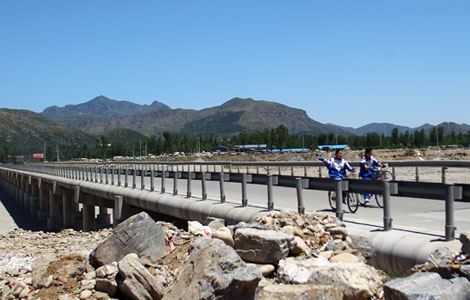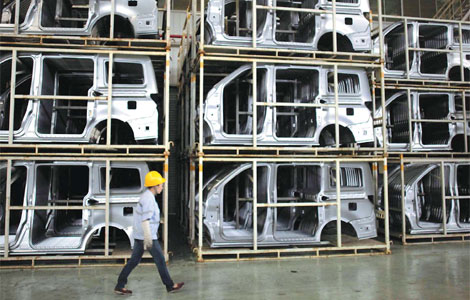'Disruptive, lacking in economic sense'
Updated: 2013-06-18 07:24
By He Wei (China Daily)
|
|||||||||||
The intention of the TPP is to form a treaty that opens up service trade, investment, intellectual property rights and other areas of economic and political interest. But the US has complicated things in a way that will make it more of a political bloc, he said.
Tan referred to a study that referenced the dwindling importance of the US to ASEAN economies in terms of trade and production. His research indicated that US influence in the region had severely dropped over the past 20 years.
"When Singapore says it needs more US engagement in the region, we are calling for economic integration, as Singapore wishes to diversify its investment portfolio and lessen its dependence on China for the sake of asset security. But we don't want to see a contrived encirclement of China," he said.
A case in point is the participation of Vietnam, said Tan, a nation that is even further away than China from meeting the TPP standards.
"No one will say it out loud, but the US is simply trying to bring in more nations that are hostile toward China over geographic or maritime disputes," he said.
The unstated goal of the TPP is to create a "high-level" trade agreement that excludes the world's second-largest economy, said Lin Guijun, an economist and vice-president of the University of International Business and Economics in Beijing.
Lin said the TPP is, in essence, a "disruptive" arrangement that lacks economic sense. He argued that most of the TPP participants are not key players along the Asian production line, and that they also lack comparative advantages among themselves.
"For example, we see both Japan and South Korea in the talks. Since the two countries largely have overlapping comparative edges, it is not a wise choice for them to be under the same framework," he said.
"That is a big club to be barred to Chinese entry," said Financial Times columnist David Pilling, who noted that the TPP may represent about 40 percent of annual global gross domestic product and one-third of world trade.
He said one of the rationales is to turn back the clock to trade policies that existed before China's 2001 accession to the World Trade Organization.
"The view that China is a freeloader and a cheat rather ignores the fact that today's advanced economies -- including Britain, the US and Japan -- all pursued rampantly mercantilist policies during their take-off phases. But there you have it," he said.
Related Stories
China hopes for transparent US-led TPP talks 2013-06-01 09:30
China to study possibility of joining TPP 2013-05-31 02:11
Factories to face headwinds from enlarged TPP 2013-04-25 02:48
Door to TPP is open for China, says US 2013-03-22 01:25
TPP may drive BRICS into action 2012-09-06 07:54
Today's Top News
China's home price rise continues to slow
China rejects Snowden spying claims
Putin, Obama face off over Syria
China to hold talks with DPRK
3 charged over attack on Chinese
G8 kicks off amid controversy
Travel becomes a family affair
Weibo draws more than just locals
Hot Topics
Lunar probe , China growth forecasts, Emission rules get tougher, China seen through 'colored lens', International board,
Editor's Picks

|

|

|

|

|

|





